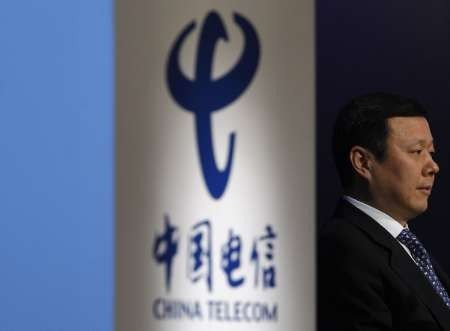EU to end Chinese telecom probe despite subsidies

The European Union will drop its inquiry into whether China is giving illegal aid to two of its leading telecom firms, even as the EU's executive cites evidence of massive subsidies, according to EU Commission documents.
The Commission will propose ending two investigations into illegal export pricing by and state aid to Chinese wireless modem producers after the withdrawal of the complaint by Europe's main producer, Belgium's Option (OPIN.BR), late last year, according to a confidential document seen by Reuters.
The proposal is expected to be approved by European Union governments later this month, ending a case industry players had expected to be a litmus test of the EU's willingness to challenge Chinese state subsidies.
It would be disproportionate to continue with the investigation and impose measures following the withdrawal of the complaint, the Commission said in its document, which was distributed on Tuesday to interested parties in the case.
But in a separate document also dated Tuesday and distributed to EU governments, the commission cites evidence -- gathered since last summer -- that China's main telecom producers Huawei [HWT.UL] and ZTE (000063.SZ) are state-controlled and receive cheap state loans that give them an unfair advantage over their European rivals.
We would welcome the termination of the investigations as we reject any accusations of injurious dumping and subsidisation, Huawei said in a statement.
ZTE has also denied receiving state aid, but could not be reached for comment.
There was no comment from the EU Commission.
Huawei and ZTE have denied receiving state aid, and neither company could immediately be reached for a response.
Option dropped its complaints of Chinese subsidies and export dumping after it reached a cooperation agreement with Huawei in October.
AID ALLEGATIONS
According to the Commission, ZTE received credit lines of $15 billion from the China Development Bank and $10 billion from the China Export-Import Bank in 2009.
Such facilities are a major selling point which enables ZTE to clinch deals in its export markets ahead of its competitors such as Option in Belgium, while shifting the entirety or majority of its risk of payment onto the Chinese policy banks, the document says.
Huawei also benefited from similar massive financing facilities, including a $30 billion credit line from the China Development Bank, the document says, adding: This suggests significant state interference.
The Commission's findings also include allegations that ZTE and Huawei are still influenced by the state.
Beyond wireless modem manufacturing, the growth of Huawei and ZTE in other sectors has worried European telecoms hardware and network infrastructure producers such as Ericsson ERICn.DE, Nokia Siemens Networks [NSN.UL] and Alcatel-Lucent (ALUA.PA).
It has also worried policy makers who fear China is encroaching on high-tech sectors hitherto dominated by Europe. Europe's chief trade negotiator last year vowed to face down illegal state subsidies outside the EU, accusing China of subsidising nearly everything.
© Copyright Thomson Reuters 2024. All rights reserved.





















